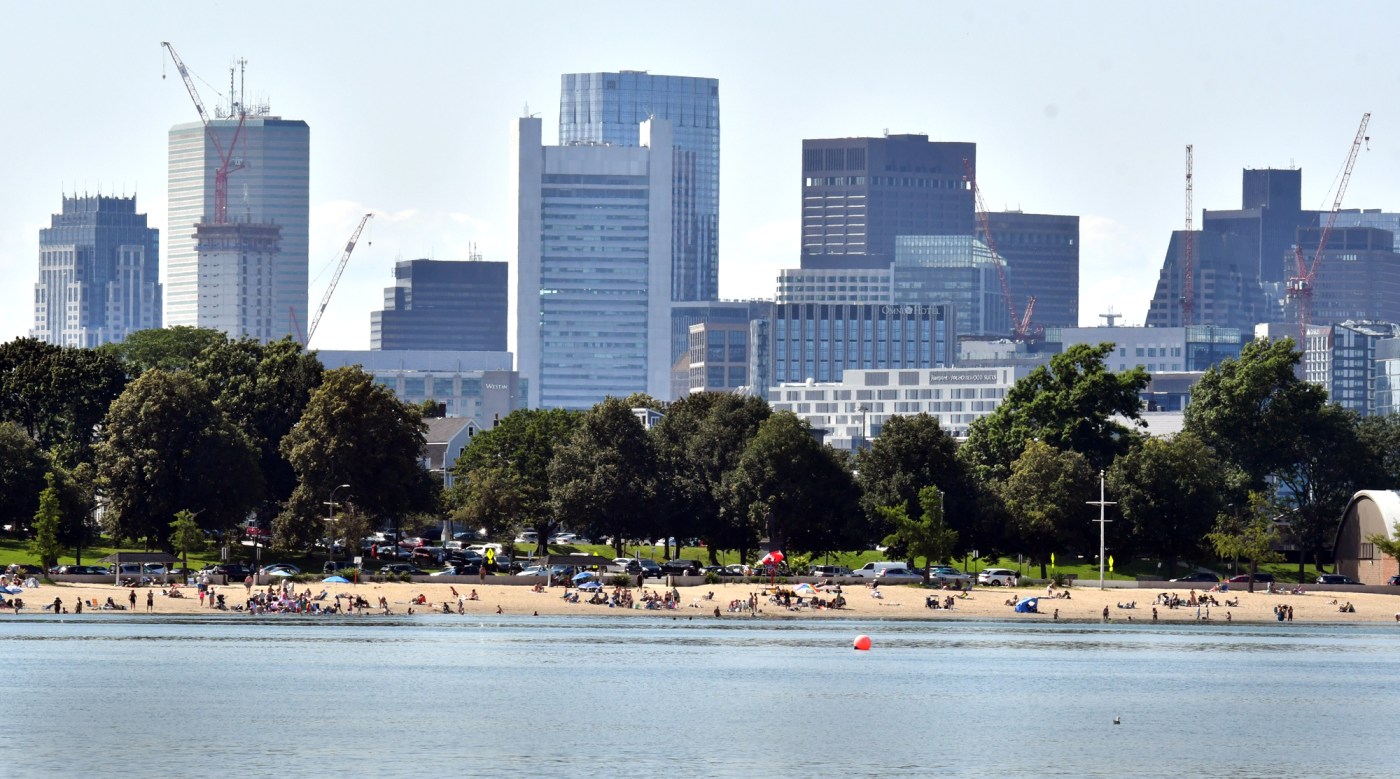
Michelle Wu considering petitioning state for higher commercial tax rates
Mayor Michelle Wu is considering filing legislation that would allow Boston to increase property taxes on businesses beyond the state limit, given the steady decline in commercial values expected to lead to higher taxes for homeowners.
Wu hinted at what the potential legislation would look like at a town hall last week hosted by WBUR, saying that there’s “precedent” for how to address that scenario, which came in the form of a bill approved by Gov. Mitt Romney two decades ago.
She was referring to the home rule petition former Boston Mayor Thomas Menino lobbied before the City Council and Legislature in 2003. It was signed into law the following year as a statewide option that allowed municipalities to shift more of the tax burden from residents to businesses, exceeding the state law cap of 175%.
“Two decades ago, at this point, there was a similar shift, but it happened because the city’s residential values were all of a sudden going up much faster than commercial values were,” Wu said, “And the way the formula worked out, residents were going to have a double-digit increase in taxes.”
“In order to avoid that,” she said, “the city sought special legislation from the state, from the City Council, and the state ultimately to be able to cushion residential taxpayers more and avoid that shock.”
Wu said her administration was “looking at” what a change in the shift currently allowed by state law would mean, but her office wouldn’t confirm whether she was moving forward with legislation or whether it would be similar to what was implemented two decades ago, when contacted by the Herald on Tuesday.
The 2004 legislation allowed cities the option to shift the commercial rate up to 200% of the residential rate, up from the 175% allowed by state law. It included a tiered system where the rate was reduced 7.5% every year for the next four years, resulting in a 170% rate as a maximum by 2009, a prior GlobeST report states.
“I think that would be important to have those tools available for us to deal with that in this moment,” Wu said last week, when speaking on the potential legislation in a segment when she was asked how the city plans to address an eroding commercial tax base that could lead to a $1 billion-plus budget deficit in five years.
Related Articles
Councilors not backing down after hearing on their free museum push for all Boston children kicked to August
Boston targeting safety upgrades at intersection where 4-year-old girl killed by truck
Amid budget crunch, Boston looks to update payment program short-changed by tax-exempt nonprofits
Pols & Politics: Battle lines starting to form in race for SJC Suffolk County clerk
Boston, professional women’s soccer team win judge’s approval for White Stadium renovation
That scenario, laid out in a report issued last month by the Boston Policy Institute, is driven by empty office space and declining commercial values, and could lead to higher taxes for residents.
Exacerbating matters, Wu said, is the city’s heavy reliance on property taxes, which contribute roughly three-quarters of annual budget revenue, most of which comes from commercial property.
While the mayor has not formally filed legislation, the potential for higher taxes on businesses is already drawing criticism.
“It’s an extremely inefficient way to raise revenue,” said Evan Horowitz, executive director of The Center for State Policy Analysis at Tufts University. “There would be a significant loss to offset the gain.”
When tax rates are raised on commercial properties, Horowitz said, that “further depresses the value of those properties, which are already in distress.”
“So over the long term, with approximate values going down, we actually collect less in future property taxes as well,” he said. “There are much more efficient ways to raise taxes and in general you want to raise taxes from healthy factors and healthy industries that can withstand the additional costs.”
He disputed the assertion that such a change would provide necessary relief to homeowners, saying that residential property is a thriving sector of the real estate market today while the commercial side is struggling.
If the city is looking to petition the legislature for a major change, Horowitz said the best solution would be for Boston to follow other cities across the country and try to introduce a local sales tax, which would help to reduce its budgetary reliance on property taxes.


